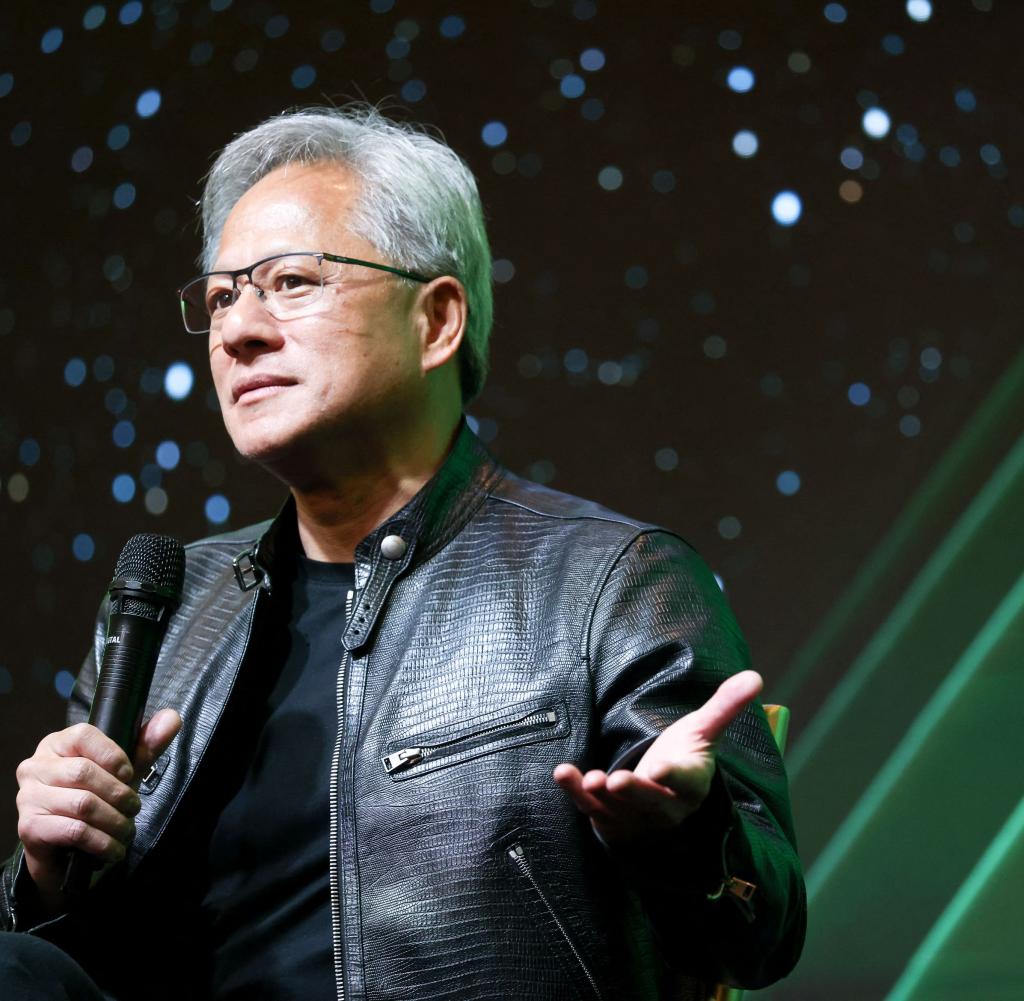The AI boom has pushed the market value of the American chip company Nvidia over the three trillion dollar mark. A price increase of a good five percent to $1,224.40 on Wednesday was the deciding factor. In after-hours trading, the share price rose by almost one percent.
Nvidia’s share price increase allowed it to just overtake Apple and it is now number two in terms of market value after Microsoft. The software giant has also gained favor with investors thanks to its artificial intelligence business. They are betting that Microsoft can bring the technology of ChatGPT inventor OpenAI into everyday office life, for example. However, Apple is also expected to make AI announcements at its in-house developer conference WWDC next week. According to media reports, this could include a partnership with OpenAI.
Nvidia benefits from all of this: the company’s chips play a key role in training software with artificial intelligence in data centers. Nvidia sells thousands of chip systems to Microsoft, Google and the Facebook group Meta, among others.
This is causing Nvidia’s business figures – and thus its share price – to skyrocket. In the last quarter alone, sales rose from $7.2 billion in the previous year to $26 billion – an increase of 262 percent. And demand remains strong: bottlenecks are looming for Nvidia’s more powerful new chip systems well into next year. At the start of the AI boom in early 2023, the company’s shares cost around $150. This year alone, the price jumped from around $500 to over $1,200.
Nvidia technology was originally developed for graphics cards. But then it turned out that it was also ideal for computing in artificial intelligence applications. Nvidia’s chips thus became a key technology for the future of AI – and the company also benefits from the business with associated software and services.
CEO Jensen Huang emphasizes that Nvidia technology is no longer just used for training, but also for operating AI applications. This potentially means an even more stable business. Although training requires enormous computing power, it is only necessary once per AI model. Huang also assumes that AI will generate all kinds of content in the future that is currently retrieved from databases.
Nvidia is also active in the business of so-called digital twins, which companies can use to optimize processes in their factories using virtual copies. The company also sells computers for automated and self-driving cars. Rivals such as Intel and AMD are also trying to participate in the AI boom, but have so far been unable to threaten Nvidia’s leading position.




